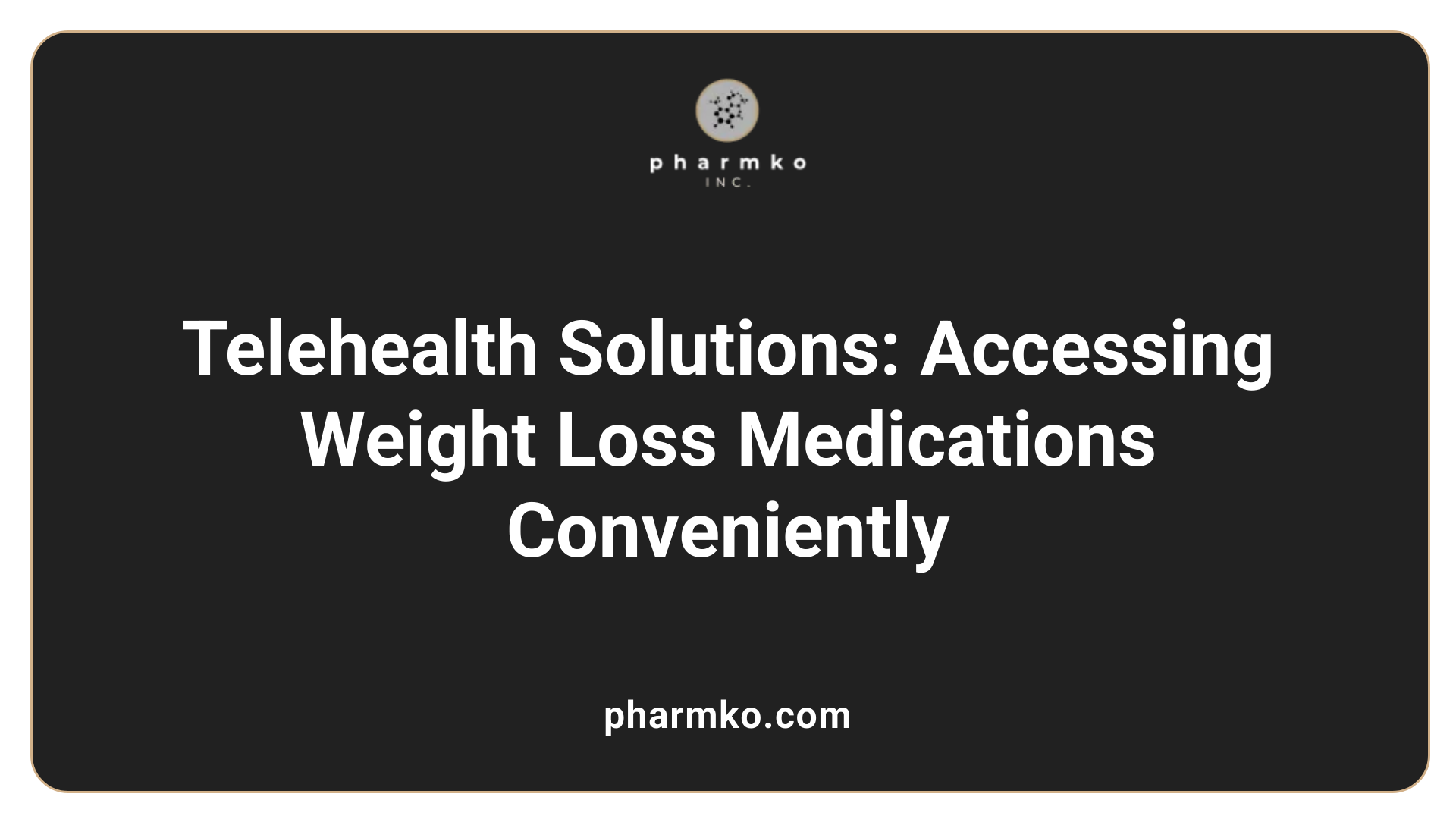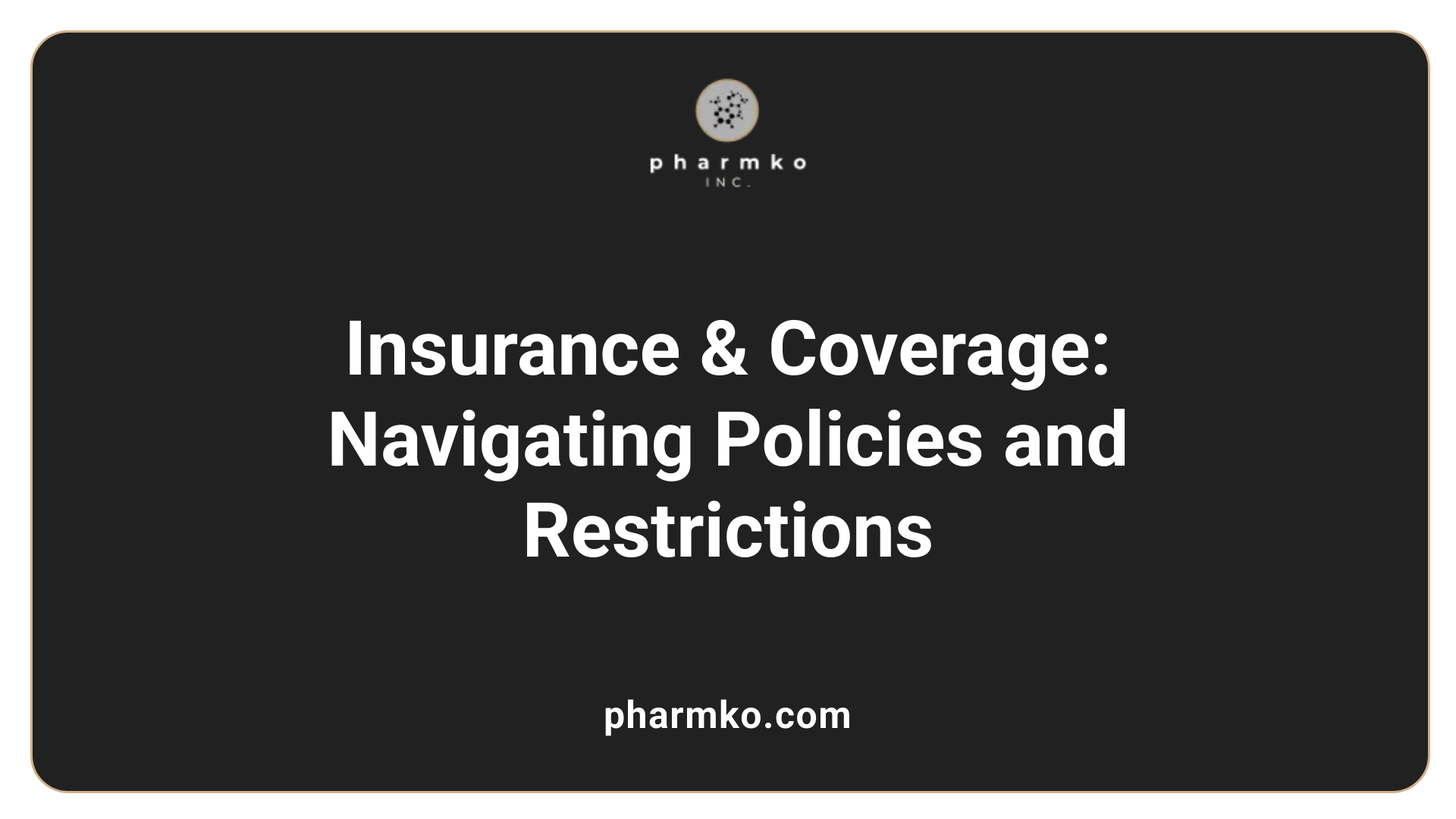Can I lose weight without insurance?
Losing weight without insurance can seem daunting, but multiple strategies and treatments are accessible. This comprehensive guide explores how you can achieve your health goals, even without coverage.
For many facing obesity or weight management challenges, the lack of insurance coverage adds a layer of complexity. Yet, it's possible to access effective solutions through a combination of lower-cost medications, lifestyle changes, and creative financial strategies. This article delves into available options, costs involved, and considerations for safely losing weight without insurance.
Understanding FDA-Approved Weight Loss Medications and Their Accessibility

What are the available options for weight loss treatments that do not require insurance?
For those seeking weight loss solutions outside the traditional health insurance framework, several options are available. Over-the-counter supplements and lifestyle modifications, such as diet changes and increased physical activity, are primary non-prescription strategies.
However, prescription medications, especially FDA-approved drugs like Wegovy (semaglutide), Zepbound (tirzepatide), Saxenda, and Ozempic, are increasingly accessible to patients without insurance. These drugs, originally designed for diabetes management, are effective for weight loss and are now offered through various healthcare providers and online services.
Recent efforts by pharmaceutical companies have led to significant price reductions. For example, Wegovy now costs around $499 per month, and Zepbound is available at approximately $349 per month for out-of-pocket purchasers. Several telehealth platforms, such as Nurx and WeightWatchers, provide personalized consultations, prescribe these medications, and offer ongoing support, often with integrated coaching.
Many of these platforms facilitate the shipment of medications directly to consumers, making access easier despite the high costs of these drugs when purchased without insurance. Additionally, some programs work to lower the financial barrier by offering savings cards or discounts, making treatments more affordable.
Patients considering these options should consult healthcare professionals to ensure the medications are suitable and safe for their specific health profiles. Proper medical supervision is crucial to manage side effects and to determine the appropriate duration of therapy. Overall, available services and reduced prices are improving access to effective weight loss medicines for those paying out of pocket.
Cost and Price Trends of Popular Weight Loss Drugs

What are the recent pricing changes for Wegovy and Zepbound?
The makers of Wegovy (Novo Nordisk) and Zepbound (Eli Lilly) have recently reduced their prices for those paying out of pocket. Currently, Wegovy’s cost is approximately $499 per month, while Zepbound starts at $349 per month. These adjustments aim to make these medications more accessible for individuals without insurance coverage.
How did manufacturing issues and shortages affect availability?
Previously, there was a significant shortage of Wegovy and Zepbound due to manufacturing problems coupled with high demand. The FDA has now declared that the shortages are officially over, allowing more patients to access these treatments. However, during the shortage, many turned to 'copycat' versions sold via telehealth. Moving forward, these unregulated alternatives will be restricted, which could impact patients relying on them.
What are the costs for off-label and compounded versions?
In addition to FDA-approved drugs, some patients seek off-label or compounded versions of these medications. Compounded semaglutide and tirzepatide are created by pharmacies not regulated by the FDA and are usually cheaper, but they carry higher risks due to limited safety oversight. The FDA warns that compounded versions may pose risks like altered compositions and unverified sourcing.
Are weight loss medications available without insurance coverage, and what are the costs involved?
Yes, it is possible to access weight loss drugs without insurance, but costs vary significantly. Without coverage, popular medications such as Wegovy, Zepbound, or Saxenda can cost between $950 and $1,600 per month. For example, Saxenda, one of the most expensive, may reach up to $1,500 at the pharmacy. On the other hand, compounded semaglutide, which is not FDA-approved, is often less expensive but comes with safety concerns.
Can savings programs lower these costs?
Many pharmaceutical companies offer savings programs and discount cards that can dramatically reduce expenses. With these programs, the monthly cost can sometimes be as low as $0 to $25, especially if patients have insurance or qualify for manufacturer assistance. Telehealth services also provide a cost-effective way to establish care and manage medication, often with subscription models starting at $99 per month, which include consultations and ongoing support.
| Drug Name | Typical Out-of-Pocket Cost | Alternative Options | Additional Notes |
|---|---|---|---|
| Wegovy | $499/month | Savings programs, telehealth | Previously limited by shortages |
| Zepbound | $349/month | Telehealth, assistance plans | Price reduction aims to improve access |
| Saxenda | $1,200–$1,500/month | Compounded versions | Safety concerns with compounded drugs |
| Compounded semaglutide | Less than FDA-approved drugs | Unregulated, higher risk | Lower cost but safety not guaranteed |
Given the variability in costs and insurance coverage, it’s advisable for patients to ask their providers and insurance providers about available options. While FDA-approved drugs provide safety and efficacy, the high costs and shortages have led many to consider alternative methods, emphasizing the importance of medical guidance.
The Role of Telehealth and Digital Platforms in Accessing Weight Loss Treatments

Can I get weight loss surgery without insurance, and what should I consider?
Getting weight loss surgery without insurance is possible, but it can be expensive. The cost usually ranges from about $7,400 to over $33,000 depending on the type of procedure and location. Paying out-of-pocket often means paying the full amount upfront, which can be a barrier for many.
However, there are options to help manage these costs. Some people turn to financing plans, such as CareCredit, or take out loans to spread payments over time. Using Health Savings Accounts (HSAs) or Flexible Spending Accounts (FSAs) can also provide tax advantages for covering surgery expenses, provided there is proper documentation.
It's important to consider the total costs involved, including pre-surgical evaluations, post-op care, and any complications that may arise. Despite the high costs, exploring whether your insurance might cover part of the procedure could be worthwhile, especially if certain medical conditions qualify.
Additionally, there are less invasive and less expensive options like endoscopic procedures or nonsurgical weight loss methods, which might be suitable depending on individual health circumstances and financial constraints.
Overall, weighing the financial considerations alongside medical advice and personal health goals is essential when deciding about weight loss surgery without insurance.
Insurance Coverage Policies and Restrictions on Weight Loss Medications

How do insurance policies typically cover weight loss medications?
Coverage for weight loss drugs like Wegovy, Saxenda, or Zepbound varies a lot across different insurance plans. Many plans only cover these medications if they are prescribed for specific medical reasons, such as obesity or related health conditions like high blood pressure or diabetes.
In most cases, healthcare providers must demonstrate a diagnosis based on established criteria, such as a Body Mass Index (BMI) over 30 or over 27 with obesity-related health issues. Before approving coverage, insurers often require prior authorization—a process where the provider must justify the medical need for the medication.
It's important to note that plans like Medicare and Medicaid typically do not cover weight loss medications when used solely for weight reduction. Medicare's restrictions stem from past safety concerns, and current laws prohibit it from covering these drugs, even if prescribed.
Coverage also depends on other factors such as the presence of comorbidities, adherence to prescribed treatment protocols, and the patient’s specific insurance policy details. Patients are encouraged to contact their insurers directly to confirm whether their plan covers weight loss medications and under what conditions.
Although many plans may initially deny coverage, patients can appeal these decisions. Working closely with healthcare providers to provide detailed documentation often helps in obtaining prior approvals.
Overall, understanding individual insurance policies and advocating for coverage through medical documentation and appeals can improve access to effective weight loss treatments.
Additional considerations about insurance restrictions
Since coverage can be inconsistent, some patients opt for alternative options like prescription compounding or manufacturer savings programs to reduce out-of-pocket costs. However, these alternatives come with their own risks and limitations.
In summary, insurance policies on weight loss drugs are complex and vary widely, making it essential for patients to verify specific plan details and work with healthcare providers to navigate coverage options.
Criteria for Eligibility and Safe Use of Weight Loss Medications

What criteria determine eligibility for weight loss medications prescribed by doctors?
Eligibility for weight loss drugs depends largely on a person’s BMI (Body Mass Index) and associated health conditions. Generally, individuals with a BMI of 30 or higher are considered candidates for these medications. For those with a BMI of 27 or greater, eligibility may also be recognized if they have health issues linked to obesity, such as high blood pressure, type 2 diabetes, or high cholesterol.
Doctors often evaluate whether a patient has attempted lifestyle changes, like healthier eating and increased physical activity, without sufficient results. Typically, if a person has not lost at least 5% of their body weight after three to six months of such efforts, medication options can be considered.
In addition to BMI and health status, the presence of obesity-related conditions influences eligibility. For example, medications are more likely to be prescribed if a patient has conditions like hypertension or prediabetes.
It’s important to emphasize that these drugs are meant to complement lifestyle modifications, not replace them. Healthcare providers carefully assess the patient’s overall health to ensure that the medication’s benefits outweigh the risks.
Long-term use and maintenance
Many FDA-approved weight loss medications, such as Wegovy and Mounjaro, are intended for long-term use to sustain weight loss. Clinical studies indicate that ongoing medication can lead to a 3% to 12% additional weight loss beyond what lifestyle changes alone achieve.
Maintaining weight loss often requires continuous medication use, as stopping treatment can result in weight regain. This ongoing use also offers health benefits, including lowered blood pressure, improved blood sugar levels, and reduced cardiovascular risk.
Medications like Mounjaro, which activate multiple hormones, have shown promising results with significant weight reduction—even over 20% of body weight in some cases—which underscores the importance of sustained treatment.
Medical supervision
Using weight loss medications safely necessitates diligent medical supervision. Providers evaluate the potential side effects, such as nausea, gastrointestinal discomfort, or more serious risks like thyroid tumors seen in animal studies.
Regular follow-up appointments are essential to monitor effectiveness, handle side effects, and adjust dosages if needed. Providers also ensure that medications are prescribed appropriately, especially considering some drugs are approved only for individuals with specific health conditions.
Patients should avoid self-medicating, especially with compounded or unapproved versions, as these pose safety risks. Proper medical oversight helps maximize benefits and minimize adverse effects, ensuring safe and effective weight management.
| Criteria | Description | Additional Notes |
|---|---|---|
| BMI | Usually ≥30 for general candidates; ≥27 with health issues | BMI should be verified; assessment includes medical history |
| Health Conditions | Obesity-related illnesses like hypertension, diabetes | Presence of health conditions can influence eligibility |
| Prior Efforts | Minimum 3-6 months of lifestyle changes | Lifestyle changes should be documented |
| Medical Supervision | Ongoing evaluation by healthcare providers | Regular monitoring for side effects and effectiveness |
This structured approach helps ensure that weight loss medications are used responsibly and effectively, tailored to individual health needs.
Behavioral Strategies and Lifestyle Modifications for Cost-Effective Weight Loss
What are common weight loss strategies outside insurance plans?
For individuals without insurance coverage or those seeking more affordable options, adopting practical lifestyle changes is a primary approach to weight management. These strategies focus on sustainable habits that promote gradual and consistent weight loss.
A cornerstone of this approach is modifying diet and physical activity. Emphasizing a balanced diet rich in fruits, vegetables, whole grains, lean proteins, and healthy fats helps minimize calorie intake while maintaining nutritional value. Limiting added sugars, processed foods, and refined grains can significantly reduce calorie consumption and promote healthier eating patterns.
Incorporating regular exercise is vital. Simple activities like walking daily, taking the stairs instead of elevators, or engaging in moderate aerobic workouts can help increase calorie expenditure. Combining these with strength training can further support fat loss and improve muscle tone.
Behavioral techniques also play a crucial role. Controlling portion sizes by using smaller plates, eating slowly, and avoiding distractions such as screens during meals can help prevent overeating. Setting realistic, achievable goals fosters motivation and reduces discouragement.
Managing stress levels, ensuring adequate sleep, and maintaining social support are additional lifestyle strategies linked to successful weight loss. Stress can trigger emotional eating, while insufficient sleep affects hormones related to hunger, leading to increased appetite.
Structured programs like the Mayo Clinic Diet or Noom offer guidance, tracking tools, and support networks that aid in long-term adherence. These programs do not necessarily require insurance coverage and can be tailored to individual preferences and needs.
Overall, combining dietary changes, increased activity, behavioral modifications, and supportive habits forms a comprehensive, cost-effective approach to weight loss outside of insurance-dependent interventions.
More information
For further guidance on adopting lifestyle strategies for weight loss, search for "Lifestyle strategies for weight loss" to find resources, expert advice, and structured programs designed to support sustainable weight management.
Empowering Your Weight Loss Journey Without Insurance
While the financial hurdles for weight loss treatments can be significant without insurance, there are practical, safe, and effective options available. Understanding the costs, exploring patient assistance programs, and leveraging telehealth services can help make weight management more accessible. Combining medically approved medications with lifestyle modifications offers a promising approach. With informed decision-making and support, it is entirely possible to pursue a healthier weight and improved well-being, even without insurance coverage.
References
- Cost of Weight Loss Drugs Goes Down for People Without Insurance
- Does Insurance Cover Prescription Weight Loss Injectables? - NAIC
- Prescription weight-loss drugs: Can they help you? - Mayo Clinic
- Does Insurance Cover Weight Loss Medication?
- Cost of weight loss drugs with and without insurance - Ro
- Woman says she got less expensive drug for weight loss after being ...
- Does Medicaid Cover Ozempic, Wegovy, and Other GLP ... - GoodRx
- Online weight loss medication with or without insurance - Sesame













